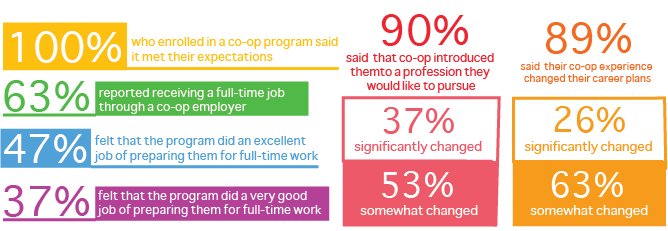St. Joe’s co-op program for business students
Employers value experience in potential employees, which many students gain through internships. The Haub School of Business offers another option: the Cooperative Education (co-op) Program.
Todd Krug, Ph.D., director of the co-op program, said that the program is essentially a year of full-time work experience, separated into two six-month periods, which is completed within the four years that a student is enrolled at St. Joe’s.
While a standard internship might require a student to work between 10 and 20 hours a week, a co-op would require 35 to 40 hours a week, allowing the student to more fully explore career choices.
At the moment, the co-op program is only available to students enrolled in the Haub School of Business, although this may change in the future, Krug said.
There are two co-op programs in the business school: Krug’s program, which lasts for four years and is available to every business major except food marketing, and a food marketing-specific program, which lasts for five years.
Normally, students with business majors are recruited during the fall semester of their freshman year, Krug said. Sometimes, however, the enrollment process can extend into the spring semester if necessary.
Interested students will then fill out an application for the program. The biggest determining factor in their acceptance is their GPA, which at minimum must be a 2.75 or above. Once students have applied, Krug sends their resumes to a roster of 50 to 60 potential employers, who will grant the students interviews, if the students fit the employer’s search requirements.
The students’ employment status is ultimately decided on this interview rather than their application, as no student in the program is guaranteed a job at any specific company.
“Co-op is very real-world,” Krug said. “It’s not like student teaching, where we place students. The students have to interview and compete for their jobs, and the companies make independent hiring decisions.”

One of the major advantages of a co-op is the opportunity to network and develop important skills and experience that could be added to a resume, Krug said.
Students enrolled in the program also gain an opportunity to figure out what they like and don’t like in a potential career field and, if necessary, make changes to their major without falling behind their classmates.
“It’s important that the student realizes that in addition to the experience and the monetary benefits of the co-op, this is also an opportunity to feel out a potential full-time job,” Krug said.
Brendan Tarte ’20 participated in a co- op in fall 2017 where he worked full-time in enterprise risk management as an intern at Chubb Limited and is still employed part-time today. The co-op program allows students to gain experience in a more in-depth way, according to Tarte.
Tarte said that, for him, the best part about having a co-op is the ability to add real experience to his resume as a college sophomore.
“Not a lot of other kids at this age have a six-month internship on their resume,” Tarte said. “So it automatically sets you apart.”
Ally Kuvik ’20 is currently in a co-op with Atalanta Corporation in Elizabeth, New Jersey, the United States’ biggest importer of cheese. Kuvik stated that a major advantage of her co-op is that it allows her to learn skills in a real work environment.
“Honestly, I feel like I’ve learned so much already, and I’m only two months in. Like I was awful at Excel before. I wouldn’t say I’m the best [now], but I’ve definitely stepped it up,” Kuvik said.
Maddie Mollahan ’17, a food marketing major, worked with Dietz and Watson during her first co-op term and Lactalis American Group during the second. As a food marketing major, she also had a third co-op term, which she spent abroad in Ireland working for a large grocery retailer.
“It was the best decision that I could have made when I came to St. Joe’s,” Mollahan said. “The co-op program gives you that real hands-on experience, and you learn so much in six months.”
Although there are many benefits to the program, students tend to get a false impression of what it takes to succeed in a co-op, according to Krug.
“Sometimes, students who are apprehensive about co-op or opt not to do it shy away from the program because of the summer semesters,” Krug said. “They don’t like the idea of giving that up. But when you really look at it, the summer is eight weeks, you’re done the second week of July, and that still gives you a five or six week summer break.”
Additionally, Krug said that many students perceive that the program will isolate them from campus and their friends.
However, Krug explained, this is not actually the case, as students will still have the opportunity to participate in school activities once their workday ends.
“The reality for most co-op students is that they’re living here on campus.,” Krug said. “They commute to work from campus. So it’s not as isolating as one might think.”
Kuvik stated that going straight from school to work was a major change.
“I would say it [the adjustment] took me maybe a week or two. Nothing too crazy, but I feel like it was kind of hard going from a school setting to work really fast,” Kuvik said. “But I definitely would say I’m surprised by the way I adjusted. I adjusted quickly.”
Both Kuvik and Tarte said that the experience was one they would definitely recommend to students who are interested.
“Just be open to what comes,” Tarte said. “I mean, you don’t always know what job you’re going to get, but whatever you get, it’s going to be a good experience.”

































